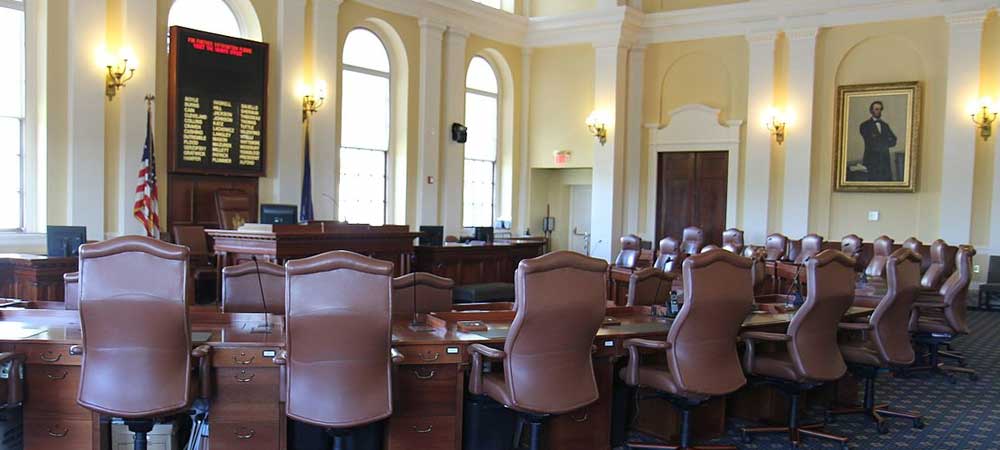- An override to the veto on a sports betting bill in Maine was supposed to happen on February 4.
- The Senate did not vote on the issue because too many members were absent to hold a vote.
- Until the state of Maine can come to a conclusion on the topic, sports bettors will continue to visit neighboring states that have legalized the pastime.
AUGUSTA, Maine – On January 10 after months of deliberation on the issue, Governor Janet Mills of Maine vetoed a bill that would allow legalized sports betting. Members of the Senate were seeking to override her decision on Wednesday but absences have delayed the vote.
In her veto statement, Mills said that if her decision was overturned, she would be more than happy to work with legislation on the subject.
“Should the Legislature override this veto, or should Legislature take up a similar measure next year, my administration will continue to help with drafting and analysis to best address the unique needs of our state,” Mills said in her statement.
While the public and lawmakers were sure that the veto would be repealed, a lack of Senate members appearing at the Session on Tuesday for the vote has left the future of the bill up in the air.
ME LD 553 has now been labeled “Unfinished Business” as no vote was taken via the bill’s status under the Legislature. The Session ends in April with no set date on the docket for voting on an override of the veto. Should the Committee not meet again before then, any hope of Maineiacs seeing legal sports betting for 2020 would be shattered.
Senate sessions take place every Tuesday and Thursday while the Committee is in session. Five members of the Senate were absent for the vote that would require two-thirds in favor of the bill for the veto to be overridden.
There are 35 members of the Senate Committee in Maine. Of the five that could not make it to the meeting, two were originally in favor of the bill while two were not during preliminary proceedings last June.
What Would Maine Gain With Sports Betting?
It’s estimated that Maine would see the sports wagering market having an annual revenue of $5 million. The bill in question states that retail sportsbooks would be taxed 10% while internet and mobile applications would be taxed 16%.
The Maine issue was the lack of ramifications discussed if the law was broken. Marketing strategies were also in question due to the Governor not wanting to advertise sports betting to those that could be at risk for financial ruin or addiction when sports betting became legally accessible.
Until a reschedule date is set for voting to occur, the sports bettors of the Pine Tree State will continue to take their business to neighboring states like New Hampshire.
“I’ve been watching what other states are doing,” said Milt Champion, executive director, Maine Gambling Control Unit. “We have people that are going to leave Maine, go to New Hampshire so they can bet on sports wagering.”
New Hampshire is expected to see an annual revenue of $7.5 million annually. This number could be higher than estimations because they are currently getting business from other states like them. The last day of Maine’s Legislative Session is April 15.
Advertising Disclosure
In order to provide you with the best independent sports betting news and content LegalSportsBetting.com may receive a commission from partners when you make a purchase through a link on our site.
News tags: Janet Mills | Maine | Maine Gambling Control Unit | ME LD 553 | Milt Champion | New Hampshire

Christina has been writing for as long as she can remember and does dedicated research on the newly regulated sports betting market. She comes from a family of sports lovers that engage in friendly bets from time to time. During the winter months, you can find Christina baking cookies and beating the entire staff at Mario Kart…the N64 version of course.


 College Football Betting
College Football Betting Best Online Sports Betting
Best Online Sports Betting Best Legal NFL Betting
Best Legal NFL Betting States With Legal Sports Betting
States With Legal Sports Betting Sports Betting Events
Sports Betting Events




